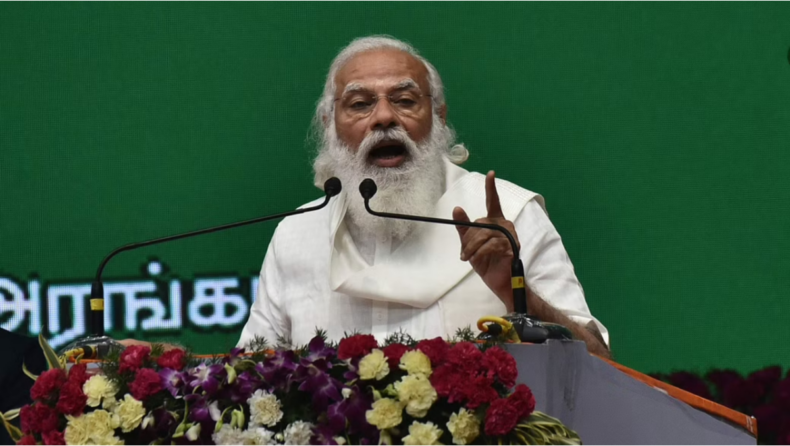Prime Minister Narendra Modi said the fundamental aim behind the NEP National Education Policy is to integrate the education system with the modern ideas of the 21st century.
Prime Minister Narendra Modi made a statement at the inauguration of a three-day seminar in Varanasi starting on July 6, where over 300 educationists will deliberate on the implementation of the National Education Policy.
NEP can bring education out from the narrow thinking and slow thought process and it will allow it to cope with the new technology and innovative ideas of the 21st century.
PM Narendra Modi addressed Akhil Bhartiya Shiksha Samagam and said “We just don’t have to prepare youth with degrees, it is imperative, that along with it, our education policy also contributes to the nation while preparing significant human resources needed to take the country forward.”
Furthermore, On PM’s first visit to the Varanasi constituency after BJP won the Uttar Pradesh assembly election. PM inaugurated Akshaya Patra which is Mid-Day Meal Kitchen that will allow schools to cook a proper meal for one lakh students.
The government said that the Akhil Bhartiya Shiksha Samagam is giving all the leading Indian Higher Educational Institutions (HEIs) to talk, discuss, deliberate and exchange new ideas, strategies for future, or maybe success stories and best practices in implementing the NEP, 2020.
PM Narendra Modi tells benefits of NEP
Prime Minister of India said, “For new NEP, work has also been done on a major infrastructure overhaul in the education sector of the country. NEP is paving way for education in regional languages. Ancient Indian languages like Sanskrit are also being carried forward,”
Furthermore, he added “Not only did India recover rapidly from the Covid-19 pandemic, but it also became one of the fastest-growing large economies in the world. We are the world’s third-largest startup ecosystem.”
In association with the University Grants Commission and Banaras Hindu University, the Ministry of Education is organising this seminar which will bring together over 300 vice-chancellors and directors from public and private universities, educationists, policymakers, as also industry representatives to sit together and deliberate on how the implementation of nep, 2020 can be taken further across the country after successful implementation of several initiatives in the last two years” a senior official of MoE said.
The official announced that many universities have already welcomed the reform and some are yet to adopt “adopt and adapt to the changes”, the official also added, “As the higher education ecosystem in the country spans the Centre, states and private entities, extensive consultations are required to take the policy implementation further. This process of consultation has been going on at the regional and national levels. The Varanasi Shiksha Samagam is next in the series of consultations in this regard.”
The topics for deliberation in the three-day seminar
There are some specific topics which will be discussed in the three-day seminar, the seminar will be based on themes such as Multidisciplinary and Holistic Education, Skill Development and Employability, Indian Knowledge Systems, Internationalization of Education, Digital Empowerment and Online Education, Research, Innovation and Entrepreneurship, Quality, Ranking and Accreditation, Equitable and Inclusive Education, Capacity Building of Teachers for Quality Education.
According to the official, the objective of the seminar is, “The summit is expected to provide a platform for thought-provoking discussions that will articulate the roadmap and implementation strategies, foster knowledge exchange and build networks through interdisciplinary deliberations and discuss challenges being faced by educational institutions and articulate solutions.”
Some other famous personalities who were presented at the summit were chief minister Yogi Adityanath, Uttar Pradesh governor Anandiben Patel, and Union education minister Dharmendra Pradhan.












